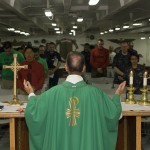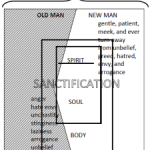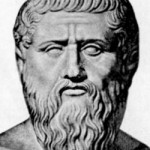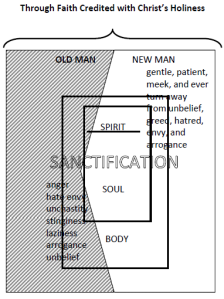
Isn’t that what the Eastern Orthodox believe in? Aren’t we Lutherans different?
If you say that you believe in theosis, does that mean you are veering towards Orthodoxy? Is that perhaps what your series of posts, If all theology is Christology, how wide the divide: a reflection on Lutheranism and Eastern Orthodoxy, is actually getting at?
Yes. Yes. No. No (if you still doubt me take a look at my post Lutherans are *not* boring: Why Lutheran pastor William Weedon did not become Eastern Orthodox – his talk is exceptionally compelling and accessible).
I remember how joyful I felt years ago when I stumbled upon and read Kurt Marquat’s article Luther and Theosis. He said things in that article that made so much sense, and yet they were things that I did not recall having heard elsewhere in Lutheran circles (or at least, not so explicitly).
And now, Pastor Jordan Cooper has a new book out on theosis, called “Christification” (see sidebar). One of Pastor Cooper’s main points is that just because we Lutherans can and should say that we believe in theosis, that does not mean that we mean quite what the Eastern Orthodox mean. There are some very important distinctions that need to be made here.
More on the book:
The doctrine of theosis has enjoyed a recent resurgence among varied theological traditions across the realms of historical, dogmatic, and exegetical theology. In Christification: A Lutheran Approach to Theosis, Jordan Cooper evaluates this teaching from a Lutheran perspective. He examines the teachings of the church fathers, the New Testament, and the Lutheran Confessional tradition in conversation with recent scholarship on theosis. Cooper proposes that the participationist soteriology of the early fathers expressed in terms of theosis is compatible with Luther’s doctrine of forensic justification. The historic Lutheran tradition, Scripture, and the patristic sources do not limit soteriological discussions to legal terminology, but instead offer a multifaceted doctrine of salvation that encapsulates both participatory and forensic motifs. This is compared and contrasted with the development of the doctrine of deification in the Eastern tradition arising from the thought of Pseudo-Dionysius. Cooper argues that the doctrine of the earliest fathers—such as Irenaeus, Athanasius, and Justin—is primarily a Christological and economic reality defined as “Christification.” This model of theosis is placed in contradistinction to later Neoplatonic forms of deification.
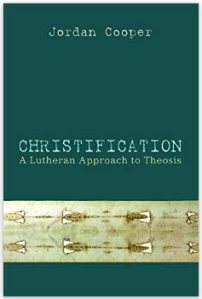 A couple of the endorsements on the book:
A couple of the endorsements on the book:
“Cooper’s work exhibits all the elements one would expect from a Lutheran scholar—a commitment to sola scriptura, a strong defense of a forensic notion of justification, and an emphasis on sacramentology—while at the same time incorporating a notion of theosis as Christification. Alongside other Protestant construals of theosis, Cooper’s work makes a fine addition.”
—Myk Habets, Carey Baptist College, Auckland, New Zealand
“On the basis of a clear exposition of the Eastern Orthodox teaching on deification, with particular emphasis on the aspect of Christification, Jordan Cooper argues eloquently for its compatibility with Lutheran theology. Without obscuring the differences between the Orthodox and Lutheran approaches, he makes a valuable contribution to ecumenical theological dialogue and potentially to the renewal of the mystical tradition in the Western churches.”
—Norman Russell, St. Stephen’s House, University of Oxford, Oxford, UK
You can purchase the book here. You can also listen to Pastor Cooper talk about the issue of theosis on two of his podcasts, here (“Theosis and Mystical Union”) and here (“Mystical Union in the Lutheran Tradition”). Lend him your ear.
FIN


